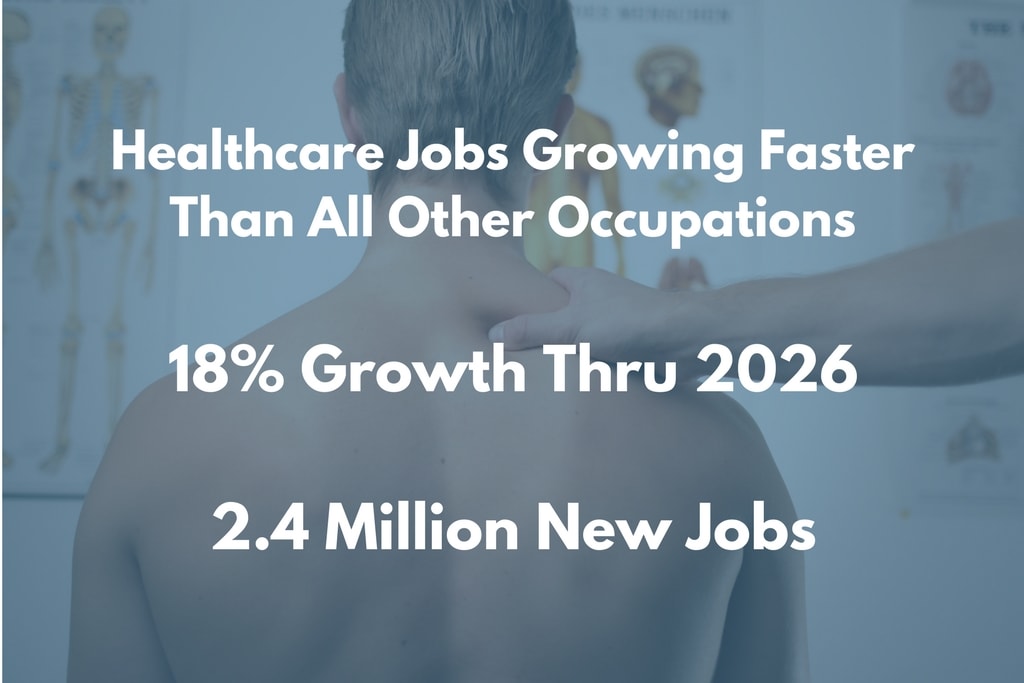When you think of health care, more often than not, the first people you think of are doctors and nurses.
That’s because those are the people you interface with 90% of the time when you’re being treated for a disease or need surgery.
However, allied health professionals cover a cornucopia of jobs that are technically demanding, and are essential in successful patient care.
There are literally thousands of jobs available in the allied health field, and the demand for these jobs will continue to grow.
Allied Health Professionals List
Allied health professionals are essentially anyone in the health care field that isn’t a doctor or a nurse.
Allied Health Professions include:
- Anesthesiologists
- Occupational Therapists
- Laboratory Technicians
- Ultrasound Technicians
- X-ray Technicians
- Phlebotomists
- Medical Assistants
- Insurance Coders
- Pharmacists
- Nuclear Medicine Technologists
- Athletic training
- Audiology
- Cardiovascular perfusion technology
- Cytotechnology
- Dental hygiene
- Diagnostic medical sonography
- Dietetics
- Emergency medical sciences
- Health administration
- Health information management
- Medical technology
- Nuclear medicine technology
- Physical therapists
- Physician assistant
- Radiation therapy technology
- Radiography
- Rehabilitation counseling
- Respiratory therapy
- Respiratory therapy technology
- Speech-language pathology
and dozens more. These are the most common examples of allied health professionals jobs.
Allied Health Professionals Jobs Market
With the growing need for jobs and the blazing competitive market, a need of professional certification has risen since the criteria have been increased.
With the added privilege of having professional certification not only makes your resume and work profile standout but also allows you a chance among plenty.
Almost any job that is a part of the health care industry, directly or indirectly involved in patient care is a part of the allied health system.
Statistics state that allied health professionals make up over 60% of the health care system. The Bureau of Labor Statistics reports that Healthcare occupations, primarily allied health professions, are the fastest growing job segment with an expected 18% growth through 2026 bringing 2.4 million new jobs.
This means that while there is continual growing demand for doctors and nurses for patient care, the support structure for these doctors and nurses will continue to grow as well.
Hospitals, ambulatory care (out-patient and doctors offices) and long term residential care continue to seek professionals in all of the allied fields and as our overall population ages and many health care professionals retire, that need will continue to increase.
This means that jobs in virtually any area of the health care field, from medical assistants all the way through Chief Executive Officers will need to be filled with qualified individuals.
The best part of becoming an allied health professional, regardless of the field you wind up in, is the fact that you will always have a job that makes a positive impact in the lives and well being of other people.
Compensation & Benefits of Allied Healthcare
While the compensation and benefits of being in the health field will always be in your best economic interest since health care is one of the few recession proof fields you can be a part of and know that your future is secure.
Being a part of the allied health field usually means great benefits as well. Not only do you have generous vacation time available, but many jobs provide you and your family with free or reduced cost health care as a perk.
When looking for a new job or for a career path that will give you economic and health security, there are no better jobs to look at than those as an allied health professional. You’ll be able to provide for your family and will have a job that you can be proud of.
Is an Allied Healthcare Profession for You?
If you are interested in a healthcare career that is rewarding and secure then you should consider one of the many allied healthcare professions.
For example, Medical Assistants are just one allied health professional who provides healthcare to patients in hospitals and a wide variety of other healthcare settings that you could consider for your career.
Regardless of which allied health profession you may pursue, you can expect the following:
- Job Security in a growing field that won’t be going away
- High compensation and benefits even during economic downtimes
- High reward from helping improve other’s lives
If you’d like to learn more about the Medical Assisting allied health profession then check out medical assisting programs and some of our most frequently asked medical assistant questions and feel free to ask your own questions 🙂


